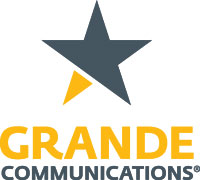RIAA Complaint Kills Grooveshark Chromecast Support
mardi 9 septembre 2014 à 18:53 Two years ago, music streaming service Grooveshark suffered a setback after its app was pulled from Google’s Android store for the second time.
Two years ago, music streaming service Grooveshark suffered a setback after its app was pulled from Google’s Android store for the second time.
While Google cited Terms of Service violations, ongoing copyright-related issues with the world’s largest recording labels were the number one suspect for the takedown. Generally, Grooveshark parent company Escape Media are not on good terms with the RIAA due to legal issues dating back several years.
Last month, however, there appeared to be something of a turnaround in relationships with Google when Grooveshark announced that it was about to debut Chromecast support via the Play Store.
The development was well received, with Hypebot wondering if Google welcoming Grooveshark back amounted to redemption for the US-based streaming company.
But now, less than a month later, it’s all over.
“After a jointly approved press release from Grooveshark, we were notified by Google [that] our app was suspended for Terms of Service of compliance,” Grooveshark announced today.
The development came as a surprise to Grooveshark, since the company believes it did enough to comply with Google’s Terms of Service this time around. However, it will come as no surprise that the root of the complaint lies with the major recording labels based in the United States.
According to a statement sent to TheNextWeb, the RIAA is behind the suspension after claiming that Grooveshark’s service infringes on their artists’ copyrights.
“We found this interesting as Google (YouTube) is also engaged in a lawsuit over the same points,” a Grooveshark spokesperson said.
While that is indeed true, YouTube’s relationships with the labels are considerably better than those currently enjoyed by Grooveshark. Even Google sympathizes with the labels, something which became evident last year when the search giant excluded the term Grooveshark from its Autocomplete and Instant services.
But despite the drawbacks, Grooveshark continues. Grooveshark for Android can still be downloaded from the company’s site. Chromecast functionality also remains.
“You may still access your full Grooveshark library on Chromecast via our main site (grooveshark.com) or html5 mobile site….using the ‘mirroring’ tool,” the company concludes.
Source: TorrentFreak, for the latest info on copyright, file-sharing and anonymous VPN services.



